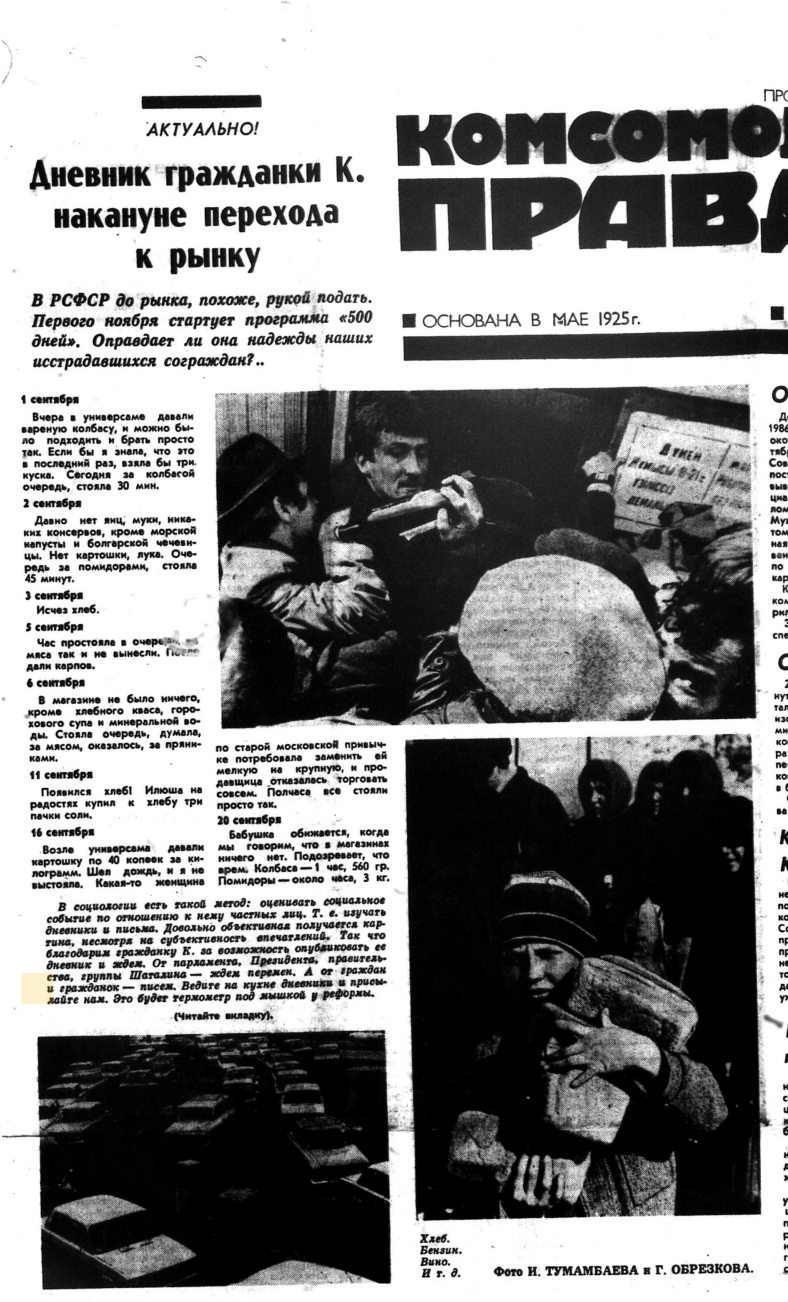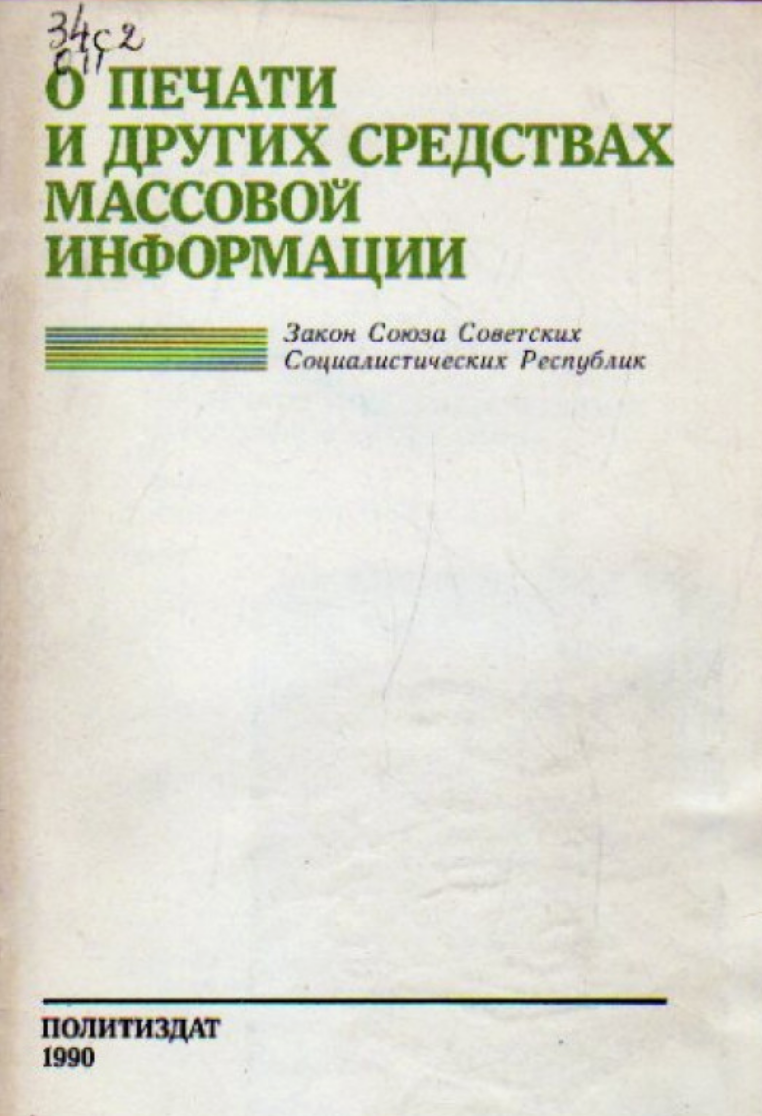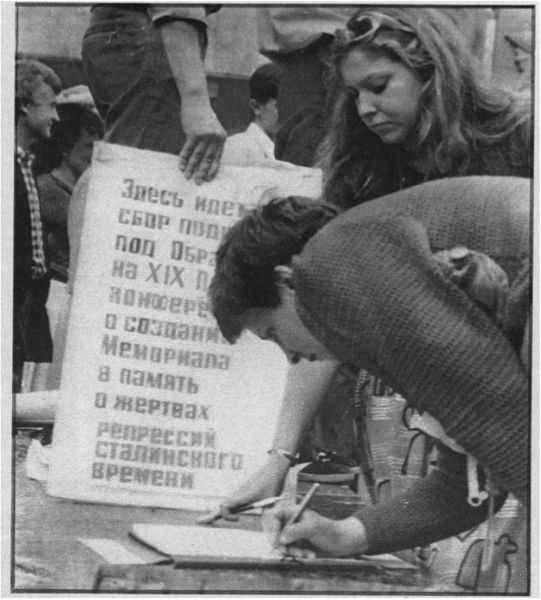Soviet audiences devour the Brazilian soap opera "Escrava Isaura"
Stills from the first episode of the Brazilian soap opera "Escrava Isaura," which aired in Brazil in 1976-77 and in the USSR/ Russia in 1988-90. In this first episode, aired on Soviet Central Television on 16 October, 1988, it is revealed that the show's title character, Isaura, is not the niece of the wealthy Almeida family—but instead a "slave" with a “mulatto [sic]” mother and a Portuguese father.
View ArtifactCitizen K.'s "Kitchen Diary" in "Komsomolskaya Pravda"
This editorial call, published on 29 September 1990 in the daily “Komsomolskaya pravda” (1925-), asked readers to keep and submit "kitchen diaries" on shortages and price changes in their area as a way to track the progress (and deficiencies) of perestroika-era economic reforms.
View ArtifactPress Law of 1990
In 1990, Mikhail Gorbachev (1931-2022) signed into law a press reform that reinforced existing commitments to speech and press freedoms, as articulated in the version of the Soviet Constitution adopted in 1977 under Leonid Brezhnev (1906-1982).
View ArtifactThe founding of the Memorial Society in the late 1980s
Three moments in the early history of Memorial, a human rights group established in Gorbachev-era Russia (and abolished by Putin’s government in 2022) to document and memorialize Soviet political repressions and abuses.
View ArtifactNovikov and Afrika Come Out
During an interview, the artists Timur Novikov and Sergey “Afrika” Bugaev talk about their otherwise unconfessed homosexuality in an intentionally shocking way.
View Artifact



